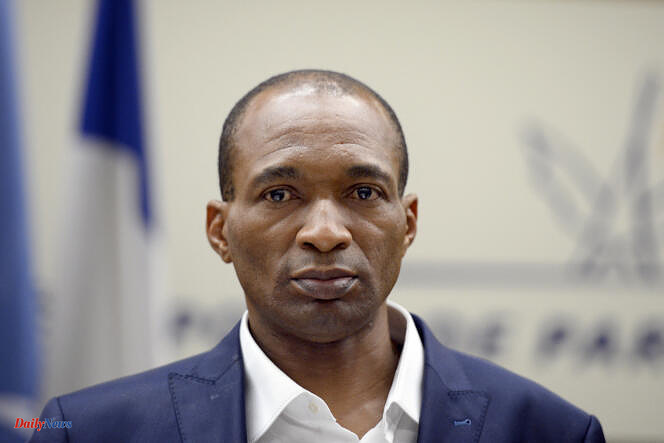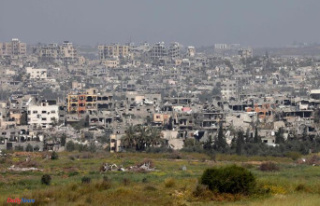Michel Thierry Atangana, 59, has been a free man for ten years but still a prisoner of his history. For seventeen years, between 1997 and 2014, this Franco-Cameroonian financial engineer was detained in Cameroon, five of which in solitary confinement in a 7 m2 dungeon, without light, after being convicted of “embezzlement of public funds”. and “influence peddling.” He was in charge of the Road Works Steering and Monitoring Committee (Copisur), a Franco-Cameroonian consortium responsible for the construction of roads in the country. The real reasons for his incarceration, however, lie in his supposed proximity to a former regime official, Titus Edzoa, also convicted of “embezzlement.”
In Surviving injustice (ed. Le Cherche-Midi, 2024), Michel-Thierry Atangana talks about his difficult reconstruction and recalls his fight for France to come to the aid of its nationals detained abroad. Since 2021, the so-called “Atangana” law has made reports from the United Nations and NGOs admissible before a French judge in cases of detention of French people abroad.
His objective today is to obtain compensation for the damage that Cameroon owes him as president of Copisur. In 2016, the General Directorate of National Security estimated, on site, the amount at 300 billion CFA francs (some 450 million euros).
I survive. Today, what guides me is the determination to bear witness and send a message to French people living abroad. I have not yet rebuilt myself, the pain I carry is heavy. I still have no recognized status, neither victim nor innocent. But I am determined to fight until my last breath if necessary. I took three proceedings before the French courts, the first in criminal proceedings which was the subject of an important decision on November 30, 2021, then the civil justice which was the subject of another decision on January 6, 2022 I detail these elements in my book.
Since December 20, 2021, the Atangana law has existed, it is included in the criminal procedure code and provides a global protection framework for all French people living abroad. This second book is part of my reconstruction process. My duty is to continue to talk about my case and carry a message of hope. I cannot be satisfied with my freedom alone, as long as I am not exonerated in Cameroon and have not been compensated.
First of all, there is a judicial investigation still in progress at the Paris court. It should end later this year. Concerning the reparation aspect, it is the Commission for Compensation for Crime Victims (CIVI) which is responsible for the investigation and the question put to it is the following: a French person who was arbitrarily detained at the Can a foreigner obtain compensation from the French State? Until now, the technical answer was no. Since then, I have become the symbol of this quest for those who are victims of arbitrary detention abroad. If the CIVI recognizes me as a victim, it must still decide on the amount of compensation that will be paid to me by the Guarantee Fund for Victims of Acts of Terrorism and Other Offenses.
On the political level, France could take measures to put pressure on Cameroon. I think that development aid should be conditional on respect for human rights. This is a technical question that the Elysée or the Quai d’Orsay must be able to resolve quickly.
Presidents Chirac and Sarkozy never cared about my case. Between 1997 and 2009, I did not exist for France. It is the arrival of a new French ambassador in Yaoundé, Bruno Gain, which allows me to finally benefit from consular protection when his predecessors looked the other way, claiming non-interference in the country's legal affairs.
François Hollande was the first French president to take a public and political stance. I'm not angry though. I lead my fight calmly, because I know its importance. There are 1,200 French people incarcerated abroad, around half of whom have no known cause. Now, you should know that the victims who are released generally do not defend themselves, it is for them that I act.
But after ten years, my patience has its limits, the French authorities must take political decisions so that Cameroon repays my debts to the thirteen companies of the consortium having invested in Copisur.
In Brussels, we were received on January 19 by the teams of the High Representative of the European Union for Foreign Affairs, Josep Borrell, where we reflected on how we could integrate such a text into the European legal corpus. In front of the European Parliament in Strasbourg, it is French MEP Max Orville who is leading the project, where he has set up a working group.
We are considering the strategy to adopt in order to provide protection to all Europeans who find themselves in difficulty with authorities who do not belong to the Council of Europe. Going from protecting 67 million people to nearly 700 million people would be a giant leap. But we do not want to be satisfied with a simple resolution. The idea is to start from a European directive and involve the Council of Europe.












